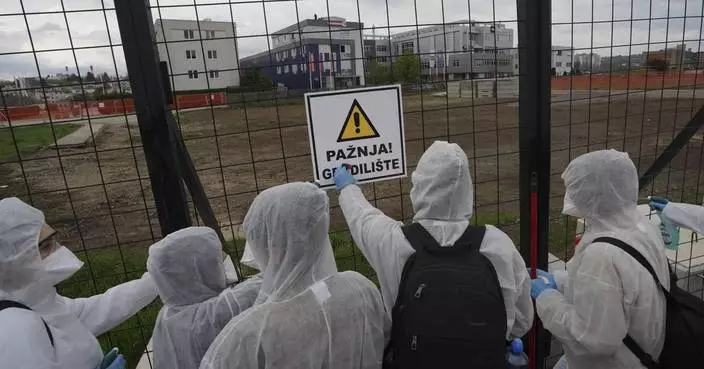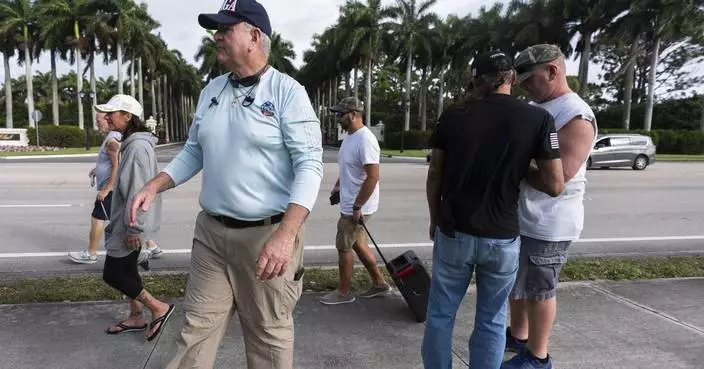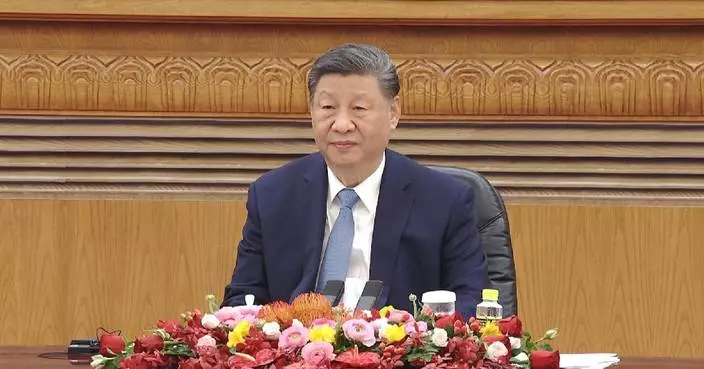The U.S. Postal Service is facing an uncertain future after the resignation this week of Postmaster General Louis DeJoy and the suggestion by President Donald Trump and Elon Musk, who heads the Department of Government Efficiency, that the mail service could be privatized.
Unions representing postal workers have balked at the idea of privatization, staging protests across the country.
While they support modernization efforts, including those initiated by DeJoy, union leaders warned that allowing private corporations to run the U.S. mail will ultimately harm everyday citizens, especially the estimated 51 million people living in rural areas who depend on the Postal Service.
“It’s a terrible idea for everyone that we serve,” National Association of Letter Carriers President Brian L. Renfroe said during a panel discussion at the National Press Club in Washington, D.C., on Tuesday.
What happens next may depend on who becomes the next postmaster general. The U.S. Postal Service Board of Governors, an independent establishment of the executive branch that oversees the Postal Service, has retained a global consulting firm to conduct a search for the 76th postmaster general and CEO.
USPS currently employs about 640,000 workers tasked with making deliveries from inner cities to rural areas and even far-flung islands.
In February, Trump said he may put the U.S. Postal Service under the control of the Commerce Department in what would be an executive branch takeover of the agency, which has operated as an independent entity since 1970.
“We want to have a post office that works well and doesn’t lose massive amounts of money,” Trump said during the swearing-in ceremony for Commerce Secretary Howard Lutnick. “We’re thinking about doing that. And it’ll be a form of a merger, but it’ll remain the Postal Service, and I think it’ll operate a lot better.”
While he didn't say anything about privatization at the event, the president has voiced support for the idea in the past. In December, he suggested privatizing the service given the competition it faces from Amazon, UPS, FedEx and others.
“It’s an idea a lot of people have had for a long time. We’re looking at it,” the president said.
Musk, meanwhile, voiced support this month at a tech conference for privatizing the Postal Service, saying, “We should privatize anything that can reasonably be privatized,” the New York Times reported.
Across the country, postal workers have been staging protests in recent days, many chanting “U.S. mail not for sale,” and some holding signs that read: “The post office belongs to the people, not billionaires,” a reference to Musk.
Renfroe said the goal of the protests is to make the American public aware that drastic changes are being considered for the Postal Service.
“Our message is: ‘No.’ Private business is interested in doing things that are profitable, as they should be," he said." But that is the distinction between private business and what we are, a public service, where we serve everyone, everywhere, no matter where they live, for the same price every day.”
Since a reorganization in 1970, the USPS has been largely self-funded. The bulk of its annual $78.5 billion budget comes from customer fees, according to the Congressional Research Service. Congress provides a relatively small annual appropriation — about $50 million in fiscal year 2023 — to subsidize free and reduced-cost mail services.
Amid challenges that include the decline in profitable first-class mail and the cost of retiree benefits, the Postal Service accumulated $87 billion in losses from 2007 to 2020. However, the service reported a $144 million profit last quarter, attributing it to DeJoy's 10-year plan to modernize operations and stem losses. The service had reported a net loss of $2.1 billion for the same quarter last year.
“By steadily improving our product portfolio, we are increasing our competitive position in the shipping marketplace," DeJoy said in a written statement February accompanying the first quarter results for Fiscal Year 2025.
Union leaders said Wednesday that they hope the next postmaster general sticks with the modernization plan and considers harnessing the Postal Service to provide other services to the public, including basic banking, electric vehicle charging and even U.S. Census work.
“Our network of physical locations, retail locations ... our delivery network, puts us in a position to do so many different things,” Renfroe said.
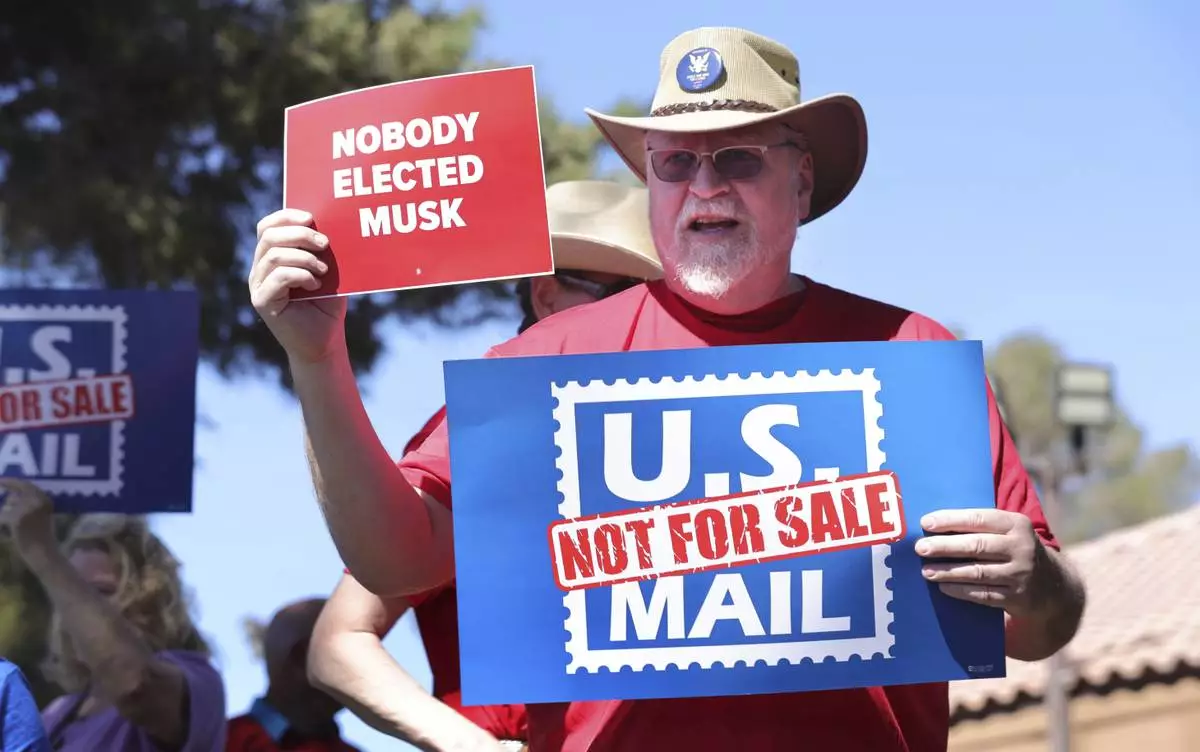
FILE - Letter carrier Fred Moss holds up signs during a protest, part of a national series of rallies against the Trump administration's plans to privatize or restructure the U.S. Postal Service, Sunday, March 23, 2025, in Las Vegas. (Steve Marcus/Las Vegas Sun via AP, File)
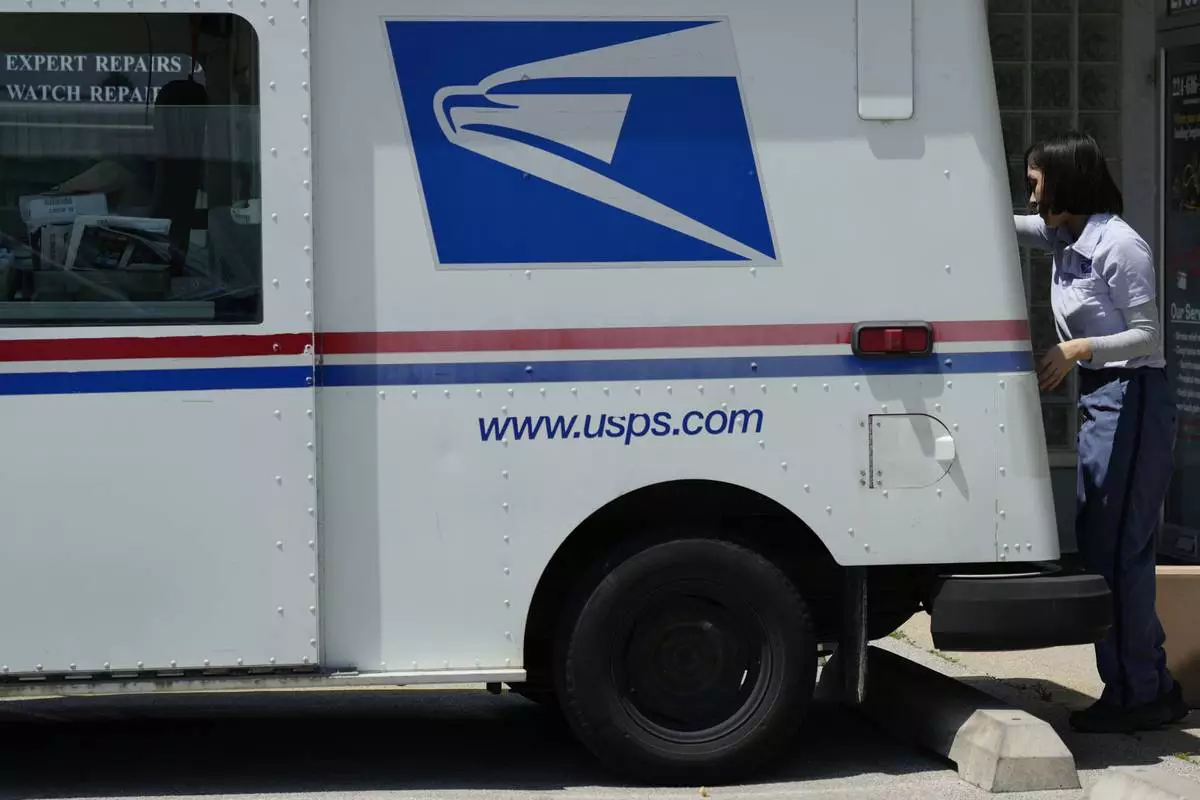
FILE - A U.S. Postal Service employee works outside as she makes deliveries in Northbrook, Ill., Monday, June 3, 2024. (AP Photo/Nam Y. Huh, File)

FILE - A U.S. Postal Service letter carrier delivers mail, Friday, Feb. 21, 2025, in Overland Park, Kan. (AP Photo/Charlie Riedel, File)
WASHINGTON (AP) — The top vaccine official with the Food and Drug Administration has resigned and criticized the nation’s top health official for allowing “misinformation and lies” to guide his thinking behind the safety of vaccinations.
Dr. Peter Marks sent a letter to Acting FDA Commissioner Sara Brenner on Friday saying that he would resign and retire by April 5 as director of the Center for Biologics Evaluation and Research.
In his letter, which was obtained by The Associated Press, Marks said he was “willing to work” to address the concerns expressed by Robert F. Kennedy Jr., about the safety of vaccinations. But he concluded that wasn't possible.
“It has become clear that truth and transparency are not desired by the Secretary, but rather he wishes subservient confirmation of his misinformation and lies,” he wrote.
The U.S. Department of Health and Human Services did not respond to a request for comment.
Marks was offered the choice of resigning or being fired by Kennedy, according to a former FDA official familiar with the discussions, who spoke on condition of anonymity because he didn’t have permission to discuss the matter publicly.
Kennedy has a long history of spreading anti-vaccine misinformation, although during his Senate confirmation hearings he seemed to say he would not undermine vaccines. He promised the chair of the Senate health committee that he would not change existing vaccine recommendations.
Since becoming commissioner, Kennedy has vowed to scrutinize the safety of childhood vaccinations, despite decades of evidence they are safe and have saved millions of lives.
Marks oversaw the agency’s rapid review and approval of COVID-19 vaccines and treatments during the pandemic.
Marks is credited with coining the name and concept for “Operation Warp Speed,” the effort under President Donald Trump to rapidly manufacture vaccines while they were still being tested for safety and efficacy. The initiative cut years off the normal development process.
Despite the project’s success, Trump repeatedly lashed out at the FDA for not approving the first COVID shots even sooner. Trump told confidants after his 2020 loss that he would have been re-elected if the vaccine had been available before Election Day.
Dr. Paul Offit, a vaccine expert at Children’s Hospital of Philadelphia, criticized what he called the “firing” of Marks.
“RFK Jr.’s firing of Peter Marks because he wouldn’t bend a knee to his misinformation campaign now allows the fox to guard the hen house," Offit said. “It’s a sad day for America’s children.”
Former FDA Commissioner Dr. Robert Califf said the issues raised in Marks' resignation letter “should be frightening to anyone committed to the importance of evidence to guide policies and patient decisions.”
“I hope this will intensify the communication across academia, industry and government to bolster the importance of science and evidence,” he wrote.
The resignation follows news Friday that HHS plans to lay off 10,000 workers and shut down entire agencies, including ones that oversee billions of dollars in funds for addiction services and community health centers across the country.
In a post on social media Thursday, Kennedy criticized the department he oversees as an inefficient “sprawling bureaucracy." He also faulted the department’s 82,000 workers for a decline in Americans’ health.
The resignation is the latest blow to the beleaguered health agency, which has been rocked for weeks by layoffs, retirements and a chaotic return-to-office process that left many staffers without permanent offices, desks or other supplies. Last month, Jim Jones, the FDA’s deputy commissioner for foods, resigned, citing “the indiscriminate firing” of nearly 90 staffers in his division, according to a copy of his resignation letter obtained by the AP.
Marks, who could not be reached for comment, also raised concerns in his letter about “efforts currently being advanced by some on the adverse health effects of vaccination are concerning” as well as the “unprecedented assault on scientific truth that has adversely impacted public health in our nation.”
He went on to detail the historic benefits of vaccinations dating back to George Washington and pointed to the ongoing measles outbreak as proof of what can happen when doubts about science take hold.
“The ongoing multistate measles outbreak that is particularly severe in Texas reminds us of what happens when confidence in well-established science underlying public health and well-being is undermined,” he wrote.
The measles outbreak, which could go on for months, has now spread to Kansas and Ohio after sickening more than 370 in Texas and New Mexico.
If it hits other unvaccinated communities across the U.S., as may now be the case in Kansas, the outbreak could endure for a year and threaten the nation’s status as having eliminated the local spread of the vaccine-preventable disease, public health experts said.
Casey reported from Boston. Perrone reported from Washington, D.C.
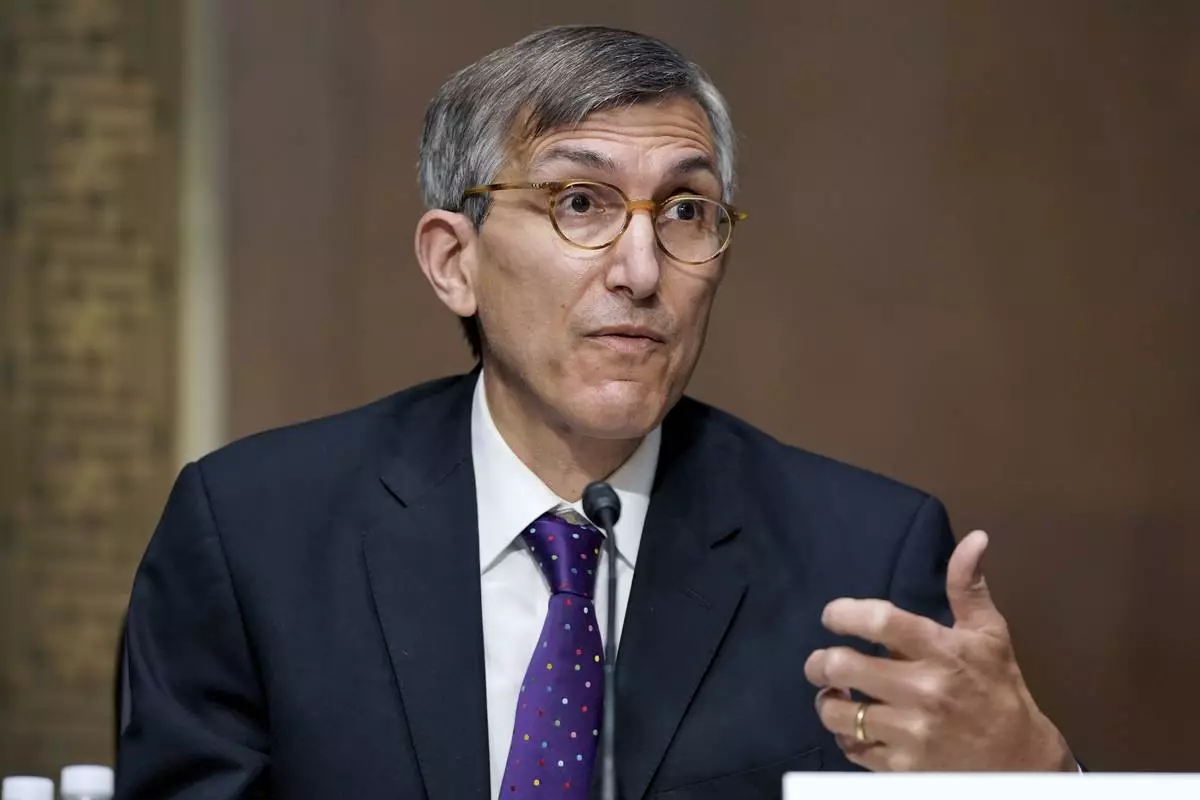
FILE - Dr. Peter Marks, Director of the Center for Biologics Evaluation and Research within the Food and Drug Administration testifies during a Senate Health, Education, Labor, and Pensions hearing to examine an update from Federal officials on efforts to combat COVID-19, Tuesday, May 11, 2021 on Capitol Hill in Washington. (Jim Lo Scalzo/Pool via AP, File)







